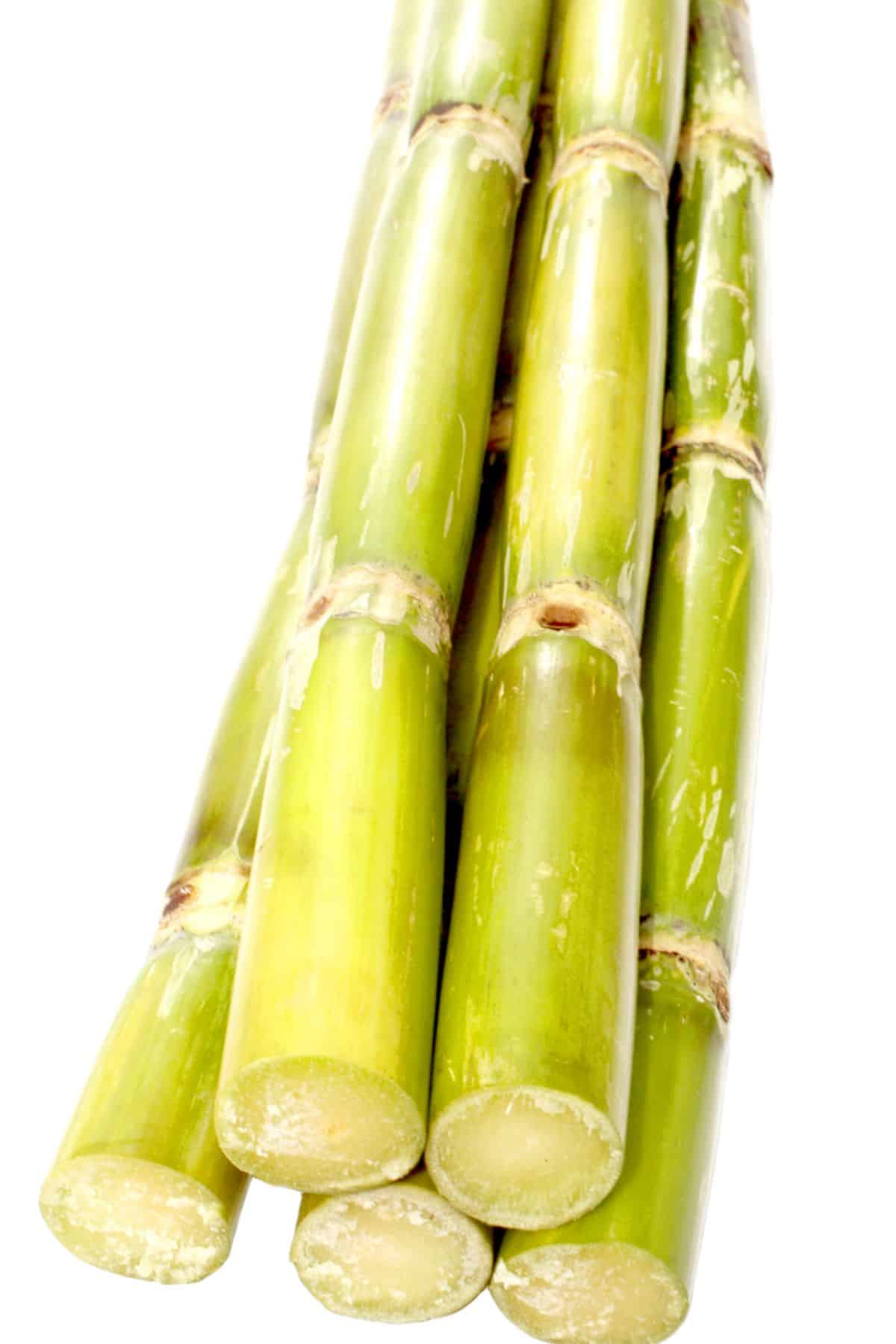Understanding Cane Sugar Processing: A Comprehensive Summary of the Stages
Understanding Cane Sugar Processing: A Comprehensive Summary of the Stages
Blog Article
An In-depth Overview of the Health and Economic Implications of Walking Cane Sugar Handling on Local Communities
Cane sugar handling plays a critical duty in shaping the economic landscape of neighborhood areas, offering employment chances and promoting ancillary sectors. The health implications connected with high sugar usage can not be neglected, as they add to increasing rates of obesity and diabetic issues.
Financial Advantages of Walking Stick Sugar Handling
Walking stick sugar handling offers significant financial advantages that prolong past the instant farming field. The growing and processing of sugarcane create numerous work possibilities, from farming to production and circulation. This work generation not only supports local economic situations however additionally fosters area growth by providing secure income sources for households.
In addition, the sugar market stimulates supplementary services, including transport, tools supply, and product packaging solutions (Cane Sugar Processing). As these industries grow, they contribute to a more durable economic framework, enhancing overall neighborhood strength. The export potential of refined cane sugar further intensifies economic advantages, placing areas as affordable players in worldwide markets
Financial investment in modern-day processing centers can result in raised productivity and performance, therefore reducing waste and optimizing source use. This shift not just benefits the regional economic climate but likewise sustains sustainability efforts by decreasing ecological influences.
Additionally, the earnings created from cane sugar processing can be reinvested in neighborhood infrastructure, education, and healthcare, advertising all natural neighborhood growth. On the whole, the economic advantages of walking cane sugar handling are multifaceted, providing a structure for sustaining success in agricultural regions.
Health And Wellness Risks Connected With Sugar Usage
Too much sugar consumption presents considerable health risks that require severe focus. High intake of included sugars, specifically from processed foods and beverages, has been linked to numerous health and wellness problems.
Furthermore, high sugar consumption is related to heart disease. Raised blood sugar level degrees can lead to insulin resistance, a forerunner to various heart-related problems. Additionally, sugar can have destructive results on dental health and wellness, leading to cavities and gum tissue condition, as microorganisms in the mouth flourish on sugar, producing acids that deteriorate tooth enamel.
Furthermore, emerging research suggests a prospective web link between high sugar intake and mental health problems, such as anxiety and anxiousness. As neighborhoods face these health dangers, it becomes vital to promote recognition and urge much healthier nutritional options. Addressing sugar usage is essential not just for individual health and wellness but likewise for the overall well-being of regional communities, stressing the requirement for comprehensive public wellness techniques.
Ecological Effects of Sugar Manufacturing
Often overlooked in conversations regarding sugar's effects is the considerable ecological influence of sugar manufacturing. The growing of sugarcane often demands comprehensive land usage, causing deforestation, loss of biodiversity, and disruption of regional environments. The conversion of forests and wetlands into sugar vineyards can lead to environment devastation, harmful numerous species and changing eco-friendly equilibrium.
Furthermore, sugar manufacturing is resource-intensive, consuming significant amounts of water for irrigation. This can cause depletion of regional water sources, detrimentally influencing both farming techniques and community accessibility to clean water. Additionally, using chemical fertilizers and pesticides in sugarcane farming can contribute to soil degradation and water air pollution, as drainage from these chemicals enters neighboring rivers and lakes, impacting aquatic life and human health.
The environmental footprint prolongs to the handling phase, where power usage and waste generation more exacerbate ecological problems. Air air pollution from shedding sugarcane fields, along with greenhouse gas discharges, contribute to environment change. Therefore, the ecological ramifications of sugar production warrant serious consideration, urging stakeholders to take on more lasting practices to alleviate these adverse effects on neighborhood communities and communities.
Task Development and Neighborhood Growth
The environmental challenges posed by sugar production are commonly counteracted by its capacity for economic advantages, specifically in work creation and community development. The cane sugar market works as a considerable source of work in several country areas, offering jobs throughout numerous skill degrees, from farming labor to handling and circulation functions. This employment not just sustains individual households yet also adds to the total economic vigor of neighborhood neighborhoods.
In addition, the establishment of sugar processing facilities promotes secondary services, such as transportation services, tools supply, and maintenance providers. As these services prosper, they develop added work and reinforce neighborhood economic situations. The earnings generated from the sugar industry additionally results in boosted tax earnings, which can be reinvested into social work such as education and learning, health care, and framework growth.
Moreover, the sugar market often takes part in neighborhood growth initiatives, such as sustaining local colleges and wellness programs, thus boosting the top quality of life for residents. By fostering strong area connections and advertising financial development, the cane sugar processing market plays a vital function in uplifting regional populations, making it a vital element of sustainable development strategies in sugar-producing regions.
Harmonizing Wellness and Economic Development
In navigating the intricacies of walking stick sugar processing, an essential obstacle hinges on balancing wellness factors to consider with financial growth. The sugar industry substantially adds to regional economic climates by generating check that jobs, promoting relevant fields, and raising tax incomes. Nevertheless, the health and wellness effects connected with too much sugar usage can lead to persistent conditions such as obesity, diabetic issues, and cardiovascular problems, which can problem public wellness systems and decrease labor force efficiency.

In addition, regulative frameworks can play a crucial function in leading industry practices towards even more sustainable and health-conscious strategies. By promoting partnership in between government bodies, wellness organizations, and the sugar industry, neighborhoods can browse the duality of wellness and financial growth, making sure that the benefits of walking stick sugar processing are equitably shared while prioritizing public health.
Conclusion
In conclusion, the handling why not look here of walking cane sugar offers both substantial financial benefits and remarkable wellness dangers for local communities. While it cultivates task production and promotes regional advancement, the associated health concerns, particularly pertaining to weight problems and diabetic issues, require a cautious balancing act. By promoting accountable usage and investing in community education and lasting techniques, it is possible to take full advantage of financial advantages while reducing unfavorable health and wellness results, therefore ensuring a healthier future for regional populations.
Additionally, sugar can have harmful results on oral health and wellness, resulting in dental caries and gum condition, as bacteria in the mouth flourish on sugar, producing acids that erode tooth enamel.
Addressing sugar usage is this page crucial not just for private wellness but additionally for the general well-being of neighborhood communities, stressing the requirement for comprehensive public health approaches.
Often ignored in discussions regarding sugar's implications is the significant environmental effect of sugar manufacturing. The wellness effects linked with too much sugar consumption can lead to chronic diseases such as excessive weight, diabetic issues, and cardiovascular issues, which can concern public wellness systems and diminish labor force efficiency.

Report this page